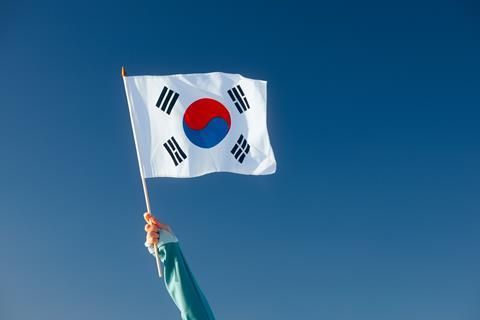Chaos and uncertainty ensued after South Korea’s President unexpectedly declared martial law on Tuesday. Our Asia correspondant on the ground, Trevor Treharne, reports
SEOUL, South Korea — For the first time in 45 years, South Korea declared martial law late on Tuesday evening, a shocking move that stunned the country and its many trading partners.
For risk managers with operations or partners in the country, it was a concerning turn for an otherwise stable democracy and the fourth-largest economy in Asia.
So why did it happen, and what will happen next?

What actually happened?
Just before 10:30 p.m. on Tuesday evening, South Korean President Yoon Suk Yeol declared emergency martial law. This marked the first such declaration in 45 years and the 17th in Korea’s history.
“I declare martial law to protect the Republic of Korea from the threats of North Korean communist forces, to immediately eradicate the unscrupulous pro-Pyongyang anti-state forces that pillage the freedom and happiness of our people, and to protect free constitutional order,” Yoon said during an emergency press conference in Seoul. “Through emergency martial law, we will rebuild and protect the free Republic of Korea, which is falling into ruin.”
The move was completely unexpected, but ultimately short-lived. Just six hours later, the National Assembly unanimously passed a resolution to lift the order. In his second announcement, Yoon was forced to reverse his earlier decision, a development met with cheers from protesters outside South Korea’s parliament early on Wednesday morning.
What was the economic reaction?
The martial law declaration had immediate economic repercussions. The Korean won plummeted to a two-year low, while Korea’s benchmark Kospi exchange dropped by 1.5 percent. Credit experts at S&P Global Ratings suggested the incident could increase foreign investors’ caution towards Korea.
How did businesses react?
Major corporations, including SK Group, LG Electronics, and HD Hyundai, held emergency meetings to assess the implications. Some companies asked employees to work from home, especially as protests continued in Seoul. Samsung Electronics, meanwhile, stated it was closely monitoring the situation but had not convened an emergency meeting.
Have supply chains been impacted?
Currently, there is no evidence of significant supply chain disruption. Retail outlets reported uninterrupted deliveries and maintained full stock levels, despite some initial panic buying of essentials like toilet paper, bottled water, and noodles. The late-night timing of the declaration and its swift reversal likely minimised the impact on logistics.
What will happen next?
Much of the backlash has been directed at President Yoon. A deeply unpopular leader, his approval ratings recently fell to 25 percent and have dipped as low as 17 percent. The National Assembly’s rejection of his martial law order, by a decisive 190-0 vote, included dissent from members of his own ruling People Power Party.
Calls for Yoon’s resignation or impeachment have intensified. On Wednesday morning, the opposition Democratic Party issued a 48-hour ultimatum for Yoon to step down or face impeachment proceedings.
What do risk managers need to do?
The brief but significant martial law declaration highlights the need for strong scenario planning and operational flexibility. Risk managers should reassess crisis management plans, ensuring robust communication channels with local teams and partners.
Business continuity protocols must also be reviewed. Companies operating in South Korea may find value in conducting risk exercises to simulate disruptions, from employee safety concerns to supply chain bottlenecks.
Additionally, it is essential to work closely with insurers to confirm that political risk coverage is sufficient to address scenarios involving sudden governmental actions. Updating risk assessments to factor in heightened geopolitical tensions is crucial, given Korea’s strategic role in global supply chains and technology markets.
Open communication with employees is vital to ensure their safety and address concerns. With protests occurring outside the National Assembly in Yeouido, organisations near this area should consider remote work arrangements until the situation stabilises.
While martial law was rescinded quickly, its shock value serves as a stark reminder of how rapidly stability can be challenged — even in seemingly secure markets like South Korea.








No comments yet